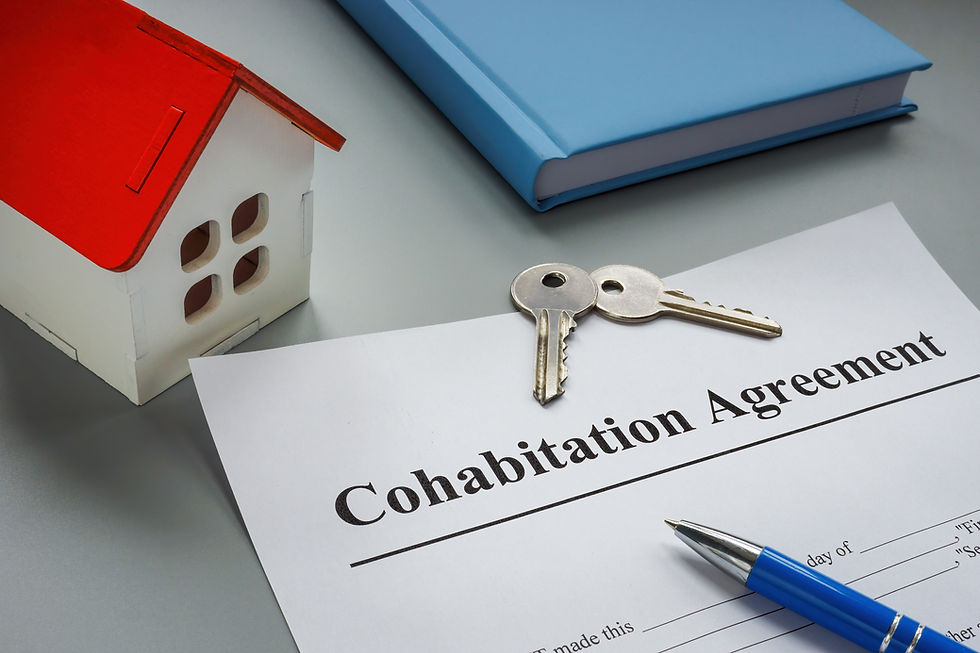The legal duty of grandparents to support their grandchildren
- administration9514
- Apr 29, 2022
- 4 min read
The common law and the Children’s Act 38 of 2005 recognize that parents are the primary caregivers of their children by imposing on them a duty of support as far as they can do so. In terms of the common law, a parent’s duty to support arises regardless of whether the child is born in or out of wedlock, and it subsists until the child becomes self-supporting. This duty has been included in s 15(3)(a) of the Maintenance Act 99 of 1998 (the Act).
According to the Lloyd v Menzies, NO and Others 1956 (2) SA 97 (N), when a parent dies, this primary obligation to support the child will not cease or be extinguished, but will instead lie against the estate of the deceased parent and where a deceased parent’s estate is insufficient to cover the child’s support, or if there is no estate remaining to meet the maintenance needs of the child, the duty to support will be extended to the child’s maternal and paternal grandparents jointly.
Grandparents are particularly important in the lives of parents and grandchildren, confirms clinical psychologist Lameze Abrahams. Due to the sociopolitical context in South Africa, parents may work long hours and sometimes live away from their children. Many parents are supported by grandparents, who assume the role of either temporary or sometimes primary caregivers of their grandchildren. Where a parent is not in a financial position to support their child, the duty of support can fall on the maternal and/or paternal grandparents, depending on which parent is not capable to provide support. Where both parents are unable to provide support, the paternal and maternal grandparents will be jointly responsible for child maintenance.
The common law recognizes a hierarchical duty of support which is why after parents, the duty falls upon the grandparents before considering relatives in the collateral line such as siblings. In the case of Barnes v Union and South West Africa Insurance Co Ltd 1977 (3) SA 502 (E) the court confirmed that there is an ‘order of priority’ and that if parents are not able to maintain their children, the duty to support falls on paternal and maternal grandparents.
When will grandparents be obliged to pay maintenance?
The minor child’s grandparents will be obliged to pay maintenance where:
The parents of the minor child are minors themselves or where the parent(s) can prove that they are unable to support the child.
The grandparents stand in loco parentis which means “in the place of a parent.”
One of the parents cannot be found but the grandparents can be.
The estate of a deceased parent is inadequate to contribute to the child’s support.
Petersen v Maintenance Officer and Others 2004 (2) SA 56 (C) confirmed that the grandparents are obliged to pay maintenance even though the grandchild is an extra marital child.
Regulation 3(1) in terms of section 44 of the Maintenance Act, 1998 and the powers it provides to a maintenance officer to exercise a discretion in calling grandparents to establish their maintenance liability is essential as there are various duties to support categories recognized by the law and the maintenance officer must be afforded the procedural means to investigate what will yet be placed before a Maintenance Court, where defendants will still be able to oppose the claim before the court makes a determination on their maintenance liability. A claim against the parent must be pursued first before invoking the grandparent’s duty to support. The financial position of all parties will, of course, be considered by the courts when deciding the amount of the contribution to maintenance.
Considerations for determining the amount of maintenance
Although the Maintenance Officer has a discretion to decide whether the grandparents can afford to contribute to the wellness and upbringing of the minor child or not, the following will be taken into consideration:
Fair and reasonable costs of the child. This could include food, housing, clothing, and proper education; the respective earnings of both the mother and father;
The financial obligations of each parent towards the minor child, and whether the parent and/or grandparents which are sued for maintenance can afford the amount being claimed; and
The lifestyle to which the parent claiming for maintenance and the child have become accustomed to.
The procedure to obtain maintenance
A maintenance order can be obtained by way of written consent between the parties and then be made an order of court. Alternatively, one party may sue the other party for maintenance, or the Maintenance Officer can make an appropriate order by default, should the defaulting party or party responsible for maintenance not appear in court.
Grandparents are aging, and many are pensioners, which can put a strain on both the grandparent and grandchild in terms of financial responsibility, emotional ability and strength. These concerns would need to be addressed. Section 23 of the Children’s Act, 38, of 2005 provides that any person having an interest in the care, wellbeing or development of a child may apply to an appropriate court for an order granting them the right to have contact with a child.
In considering applications, a court will take in account the following:
The best interests of the child;
The relationship between the person making the application and the child;
The degree of commitment the person making the application has shown towards the child;
The extent to which the person making the application has contributed towards the expenses of the child’s birth and/or maintenance.
In terms of the common law, however, the duty to support a grandchild is not enforceable against the deceased estate of a grandparent. The Supreme Court of Appeal (SCA) in the Van Zyl NO v Getz NO (548/19) [2020] ZASCA 84; [2020] 3 All SA 730 (SCA) case, ruled against the development of the common law to include a liability on the deceased estate of a grandparent to maintain a grandchild. The SCA held that the development of the common law would be inappropriate, given the effect it may have on the law of succession and other foundational values of the Constitution.
In conclusion, maternal and paternal grandparents should be aware that a maintenance order can be granted in instances where their children cannot provide for their own children. Rudolf Buys & Associates Attorneys specializes in maintenance law in South Africa, contact our offices today for expert, sound guidance on your maintenance matter.
.png)



Comments